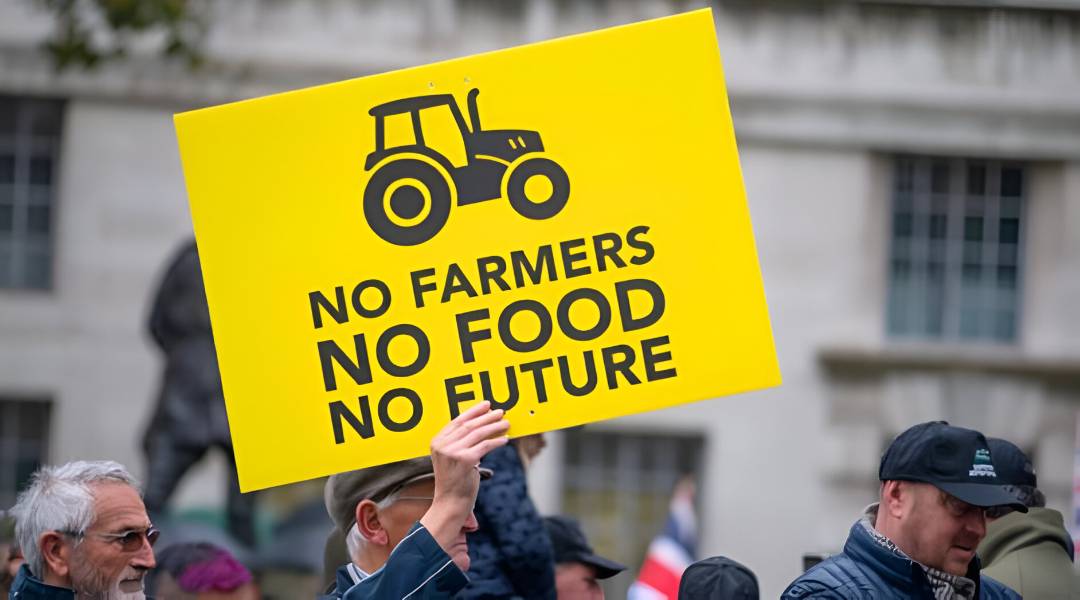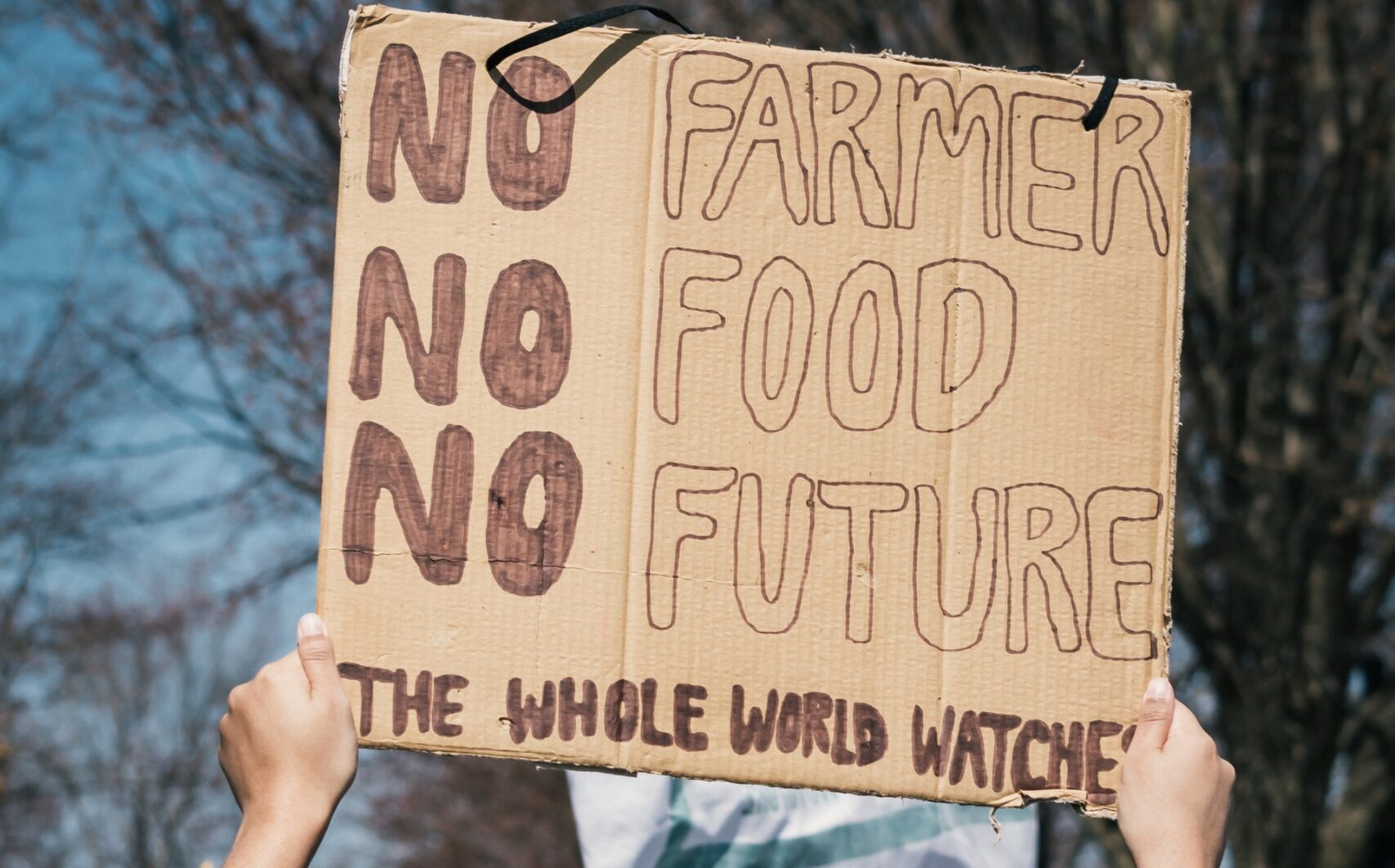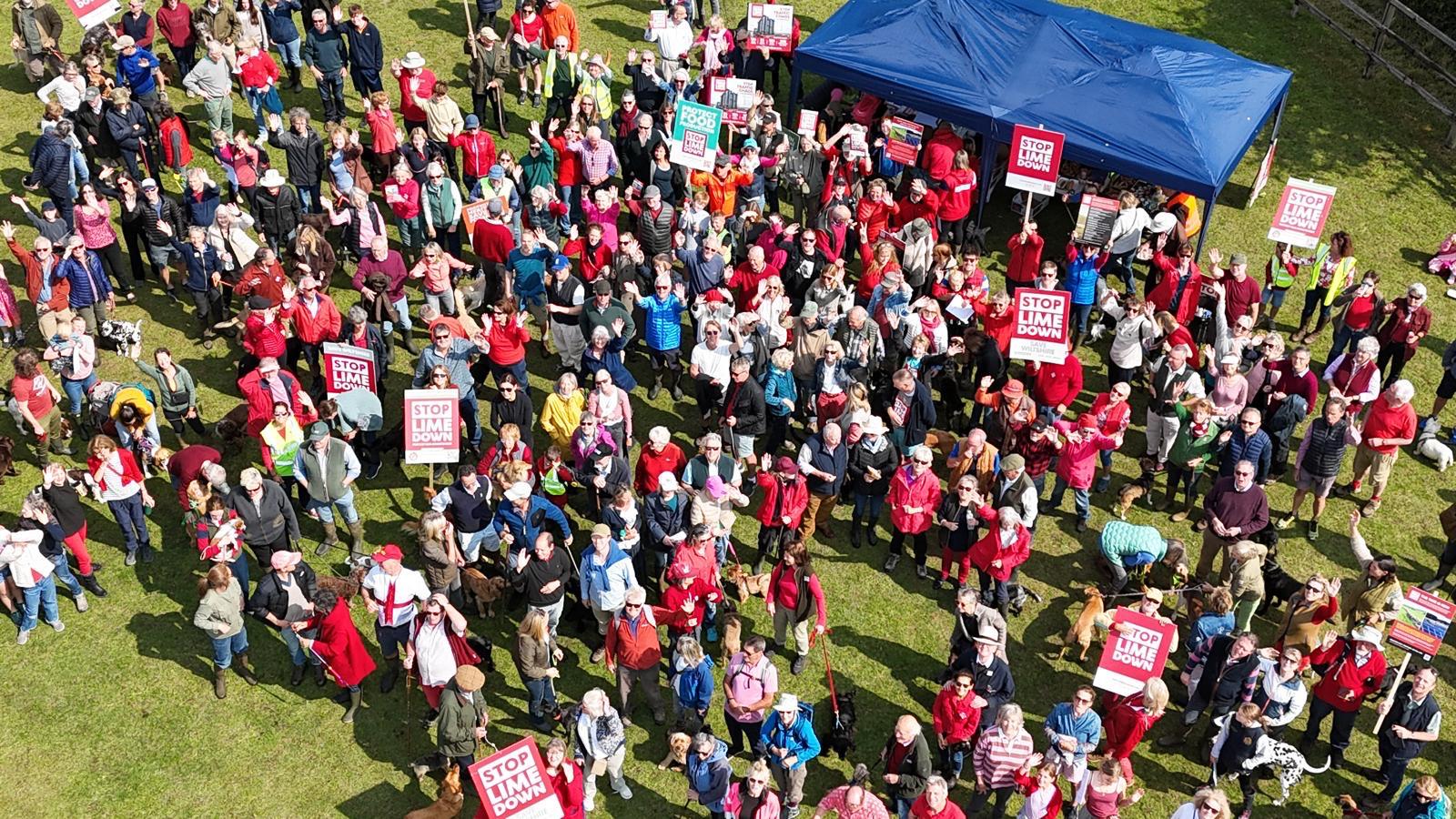Rooting for Real Farms: Millstream Farm
Millstream Farm in Co. Wexford, Ireland started rearing pigs from their 4 Oxford Sandy Blacks for pork boxes directly to local customers. Farmer Jamie says, “We’re hoping that Covid, that’s pushed people towards ethically produced and higher welfare food, drives people to try our pork boxes. Once they try the pork they will taste the difference. Our pigs are raised outdoors with lots of room to roam and root and be happy pigs.” Please give their video a like and a share.
Billions for Big Ag
It is a myth that trade is ‘free’ and markets are ‘competitive’ for all businesses. Last week I wrote about how investment funds are pouring money into agri industrial systems that inevitably out compete small and medium scale agro ecological farming;
On the investment side, Becheva (Friends of the Earth) said private banks and investors, as well as development banks such as the World Bank and the European Bank for Reconstruction and Development needed to stop financing large-scale, intensive animal protein production projects.
This UN report on government subsidies given to giant corporations again exposes the free trade myth and shows that our government’s primary interest is not the long-term health of their citizens but that their corporations win the trade wars.
‘Global support to producers in the form of subsidies and other incentives, makes up 15 per cent of total agricultural production value. By 2030, this is projected to more than triple, to $1.759 trillion. The Organisation for Economic Co-operation and Development (OECD ) defines agricultural support as the annual monetary value of gross transfers to agriculture, from consumers and taxpayers, arising from government policies.
Current support mostly consists of price incentives, such as import tariffs and export subsidies, as well as fiscal subsidies which are tied to the production of a specific commodity or input.’
Though it is good to expose the subsidies, my trust in the UN to redirect the subsidies to support real food and farming is wearing thin. Even the UN’s introductory paragraph excluded small scale agro ecological farmers and their representatives as part of the solution .
‘A few countries have begun repurposing and reforming agricultural support, but action needs to be broader, bolder and faster worldwide. The time has come for greater collaboration and cooperation across government, research institutions, non-governmental organizations and the private sector to develop the evidence on which successful repurposing strategies can be built. The United Nations Food Systems Summit 2021 and other subsequent forums present a momentous opportunity to spearhead action in this direction.’
According to scores of NGOs representing food sovereignty, the UN Food Summit has been hijacked by Big Ag, not least the Gates Foundation’s billions and his Alliance for the Green Revolution in Africa (AGRA), so small scale farmers and indigenous people are hosting their own Global People’s summit on Food Systems.
‘An unjust, inequitable, unhealthy, and unsustainable food system brought about by global monopolies in agriculture production and trade; by decades of global land grabs and environmental devastation intended for profit; by unequal treaties and agreements like those under the WTO; by neoliberal reforms bankrolled by the IMF-WB; by national policies that perpetuate corporate and landlord control of lands and agricultural trade; and proliferation of capitalist farms at the expense of smallholder producers and landless rural peoples. This is imperialism in action, with its laws and inherent contradictions underlying the anarchic and wasteful production and consumption of the world’s food.’
Deregulation
Benito Mussolini; “Fascism should rightly be called corporatism, as it is the merger of corporate and government power.” Today we see governments reduce regulations that protect citizens, through free trade treaties to free global businesses to win in the global competition. At 7mins 20 seconds into the BBC’s Farming Today, the BBC presenter lays out the battle lines between the UK’s trade secretary and the UK’s farm representatives at the NFU. She asks;
‘The Trade Secretary, Liz Truss, has been calling for a more proactive approach to forging trade deals with Asia and the Pacific. But at the same time the National Farmers Union (NFU) is calling on the government to not allow British self sufficiency in food to fall below it’s current 60%. So can trade and self sufficiency work together?’
‘Today is the NFU’s Back British Farming Day, and as part of it the Union has published a new report which calls on the government to support domestic food production, publish a food security report which they have to do (every 3 years) under the new Agriculture Act, and commit to using British food in public procurement.
The NFU’s President Minette Batters response is to see this 60% self-sufficiency grow but recognises that unless we have import equivalence, we will continue to lose our precious farmers.
NFU can’t have it both ways
The NFU is conflicted with its love/hate relationship with trade treaties not least in their discussion of the new Canada and Mexican agreement. One moment the NFU speaks of the opportunities of selling more of our high welfare meat and the next it is concerned about imports undermining our farmers.
‘The NFU has also called for greater market access opportunities for British dairy, fruit and vegetables, poultry meat and organic goods into Mexico.
But the union highlighted concern about the potential for greater market access being given to Mexican exports of beef, eggs, sugar and horticultural goods into the UK.’
In my humble opinion, we need a ‘site here to sell here’ policy so nothing that can be made locally in either country should be imported from the other.
The true definition of agroecology
There is a big difference between the agriculture advocated by Big Ag who want to control the markets and profit from feeding the world, and the decentralised agri culture that, like the ecosystem itself, is diversified and decentralised to supply the needs of local communities within the limits of the health of the local ecosystem of which we are but a part. When money stays in the locality there is a more equitable distribution of the planet’s plentiful resources. If you are confused by Big Ag’s sugar coated definitions of agriculture, that is because in reality they want a continuation of agri industry, see this excellent definition of agroecology.
‘The agroecological perspective is based on a transformative vision of the relationship between people and nature. Economic anthropology has unearthed a wide diversity of systems of economic exchange that are informing work on agroecology, including the vital importance of Indigenous and peasant economies, gift economies, circular economies, subsistence, and economies of care. These are pushing agro ecologists to think outside of the box of dominant commodity capitalism. Agroecology is also based on a radical conceptualization of knowledge systems, whereby work on cognitive justice, epistemic justice, Indigeneity, and decoloniality is upending the dominance of Western, scientific, Eurocentric, and patriarchal worldviews as the basis for the future of food and agriculture. Agroecology is also underpinned by radical notions of democracy and new conceptualizations of popular education, transformations in governance, and empowering forms of participation.
Land defenders are murdered
Across the world, there are about 227 killings of indigenous leaders for defending their terrain and ancestral territory against colonialist’s theft and destruction – that is more than 4 people every week.
‘And they (indigenous people) are at risk, in the end, not so much because of another local person who pulls the trigger or plunges the blade; they’re at risk because they find themselves living on or near something that some corporation is demanding.’
However, the article doesn’t mention how we could end this theft if we stop buying the products. Buying local and thereby knowing the provenance of everything we buy ensures we are consuming according to the type of world we want to live in and not purely to satisfy our material appetite;
Eat less but better meat – Call for accurate labeling
Key to this debate is the need for local extensive agriculture i.e. pasture fed animals and the need to eat less but better meat.
Farms not Factories (FNF) will be taking part in the government’s ‘Call for Evidence’ on animal welfare labelling. The Pasture-Fed Livestock Association (PFLA) is leading a newly established Consortium of civil society, farming and food organisations, called CLEAR – which stands for the Consortium for Labelling for the Environment, Animal Welfare and Regenerative Farming which will provide evidence about the benefits of mandatory method of production labelling. Sign the CLEAR petition to keep up the pressure.
‘Current labelling of meat and dairy products is unclear and misleading. Many labels show idyllic images of farmyard animals in picturesque fields, accompanied by phrases like ‘farm fresh’ or ‘all natural’, but what often lies behind these cheerful scenes is shocking.
Although around 70% of UK farm animals are reared in intensive systems, there’s no law requiring food labels to say how an animal has been raised – except for whole hens’ eggs. Consumers simply don’t have the information they need to avoid factory farmed products.’
The solution is extensive agriculture not fake meat
All too often the corporate PR machine only focuses on the need to reduce CO2 emissions so governments and investors continue pouring money into high tech monoculture farms, with fake meat (and fake fish) as the solution to the myriad of problems of factory farming. This article in the Gates funded Guardian; ‘Production of meat worldwide causes twice the pollution of production of plant-based foods’, fails to point out that returning to pasture fed animals (and protecting wild fish habitats) can cure all the problems of ecocide caused by the industrialisation of agriculture.
Please donate
Forgive me for pointing out that, while we receive some one-off donations, I am funding Farms Not Factories myself, and if we are to continue to fight the cruel, antibiotic-led factory farm system, we will need some regular donations from like-minded people. Please consider a monthly subscription of £2/month and help us support a network of smaller scale, humane and healthy UK pig farms, local abattoirs and butchers.
“Our message is simple, we want to help bring an end to this dangerous, inhumane system. Vote for real farming over factory farming.”
– Tracy Worcester, Director
Contents
Share This Article
Related ArticlesView All
Protectionism vs So-Called Free Trade
The purpose of our newsletter is to give you important information that is censored in the mainstream media. “The way… Read More
Find A Farmer
The purpose of our newsletter is to give you important information that is censored in the mainstream media. “The way… Read More
Zionist Money Rules
The purpose of our newsletter is to give you important information that is censored in the mainstream media. “The way… Read More
The Price of Progress
The purpose of my newsletter is to give you important information that is censored in the mainstream media. “The way… Read More
Silencing Dissent Through Fear
The purpose of my newsletter is to give you important information that is censored in the mainstream media. If you… Read More
Ukraine and Israel – A United Force
The purpose of my newsletter is to give you important information that is censored in the mainstream media. If you… Read More






